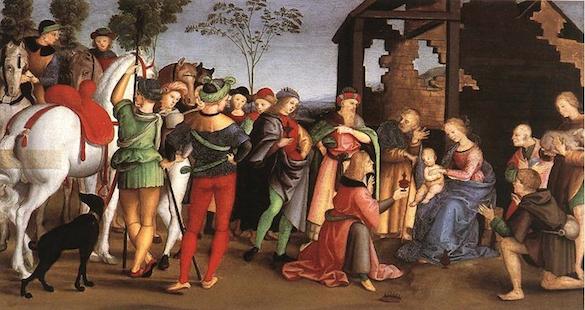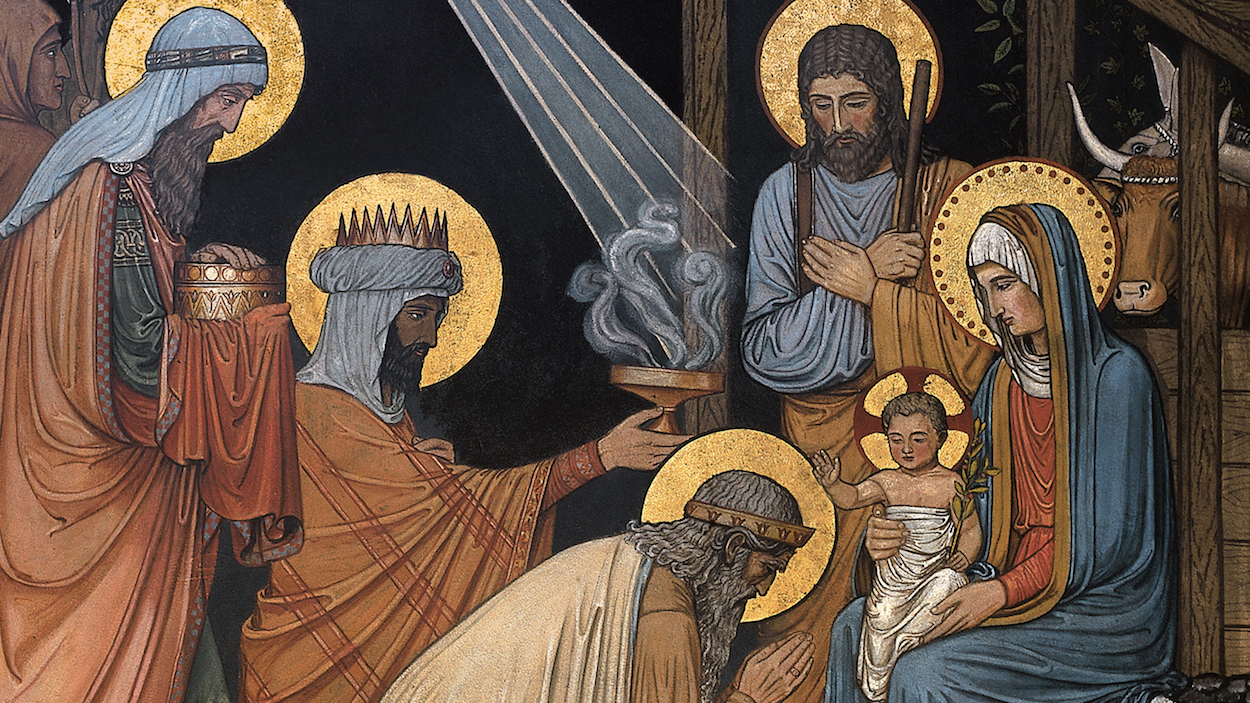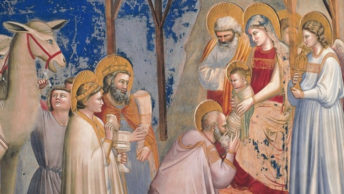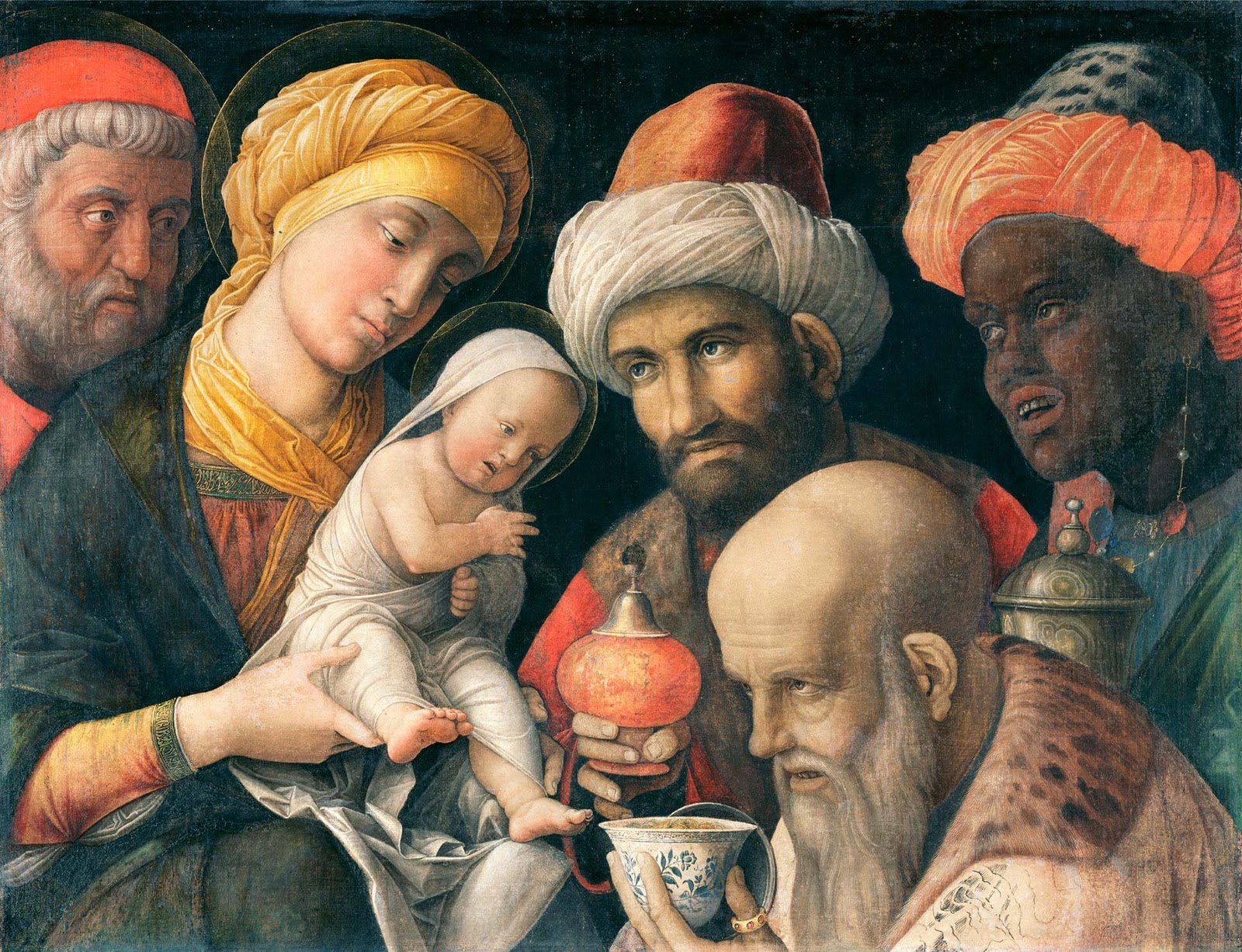
The Gospel account (Mt 2:1-12) for the Epiphany of the Lord… it’s all about seeing, about vision, about what holds our attention and captures our concerns.
We’ve all heard expressions such as “Well, in the light of what you’ve just said I see things differently now.” Or, “Seen in that light I think…” Or, “Oh, now I see the light.”
All of these express a change in perspective, a change in which we see and understand things. It isn’t so much a matter of just seeing as it is a matter of seeing and changing one’s outlook. That changed outlook results in changing one’s attitude and ways of knowing, one’s comprehension.
The Christmas story, the infancy narrative of Jesus Christ, isn’t just a story for children — it’s a challenge for adults. When we see our world covered in darkness and are tempted to despair, we need to change our perspective. Instead of seeing only with our human eyes, eyes that see only what is apparent, obvious and objectively provable, we need to see ourselves and our world as God sees things. And how does God see things? The way Jesus does. “The Father and I are one,” he told us.
The first reading from the Prophet Isaiah (60:1-6) is about how the ancient Israelites were seeing life. They had been living in terrible times, times of forced migration and misery in Babylon. Their homeland had been pillaged and plundered; their beloved Jerusalem was lying in ruins. The prophet Isaiah, whose words we just heard, was speaking to them upon their return back home, their return to Jerusalem. They were back home, but living in ruins.
It was time to rebuild. Isaiah was giving them a new perspective on their lives. Isaiah is giving them words of God’s promise, giving them reason to hope. Hope was something they desperately needed in the darkness of the death and destruction in which they had lived. They needed to see things differently; they needed to see themselves and their lives in a new light.
The same was true centuries upon centuries later when Jesus the Christ was born. But at Christ’s birth it was not only the Jews who needed to see things differently, it was all other people as well, the non-Jews, the Gentiles, people all over the world who were living in times of terrible darkness and despair. It was into such a world that God sent His only begotten Son, Christ Jesus. And as He did then, so He does now, in our times.
On December 25th we celebrated the birth of the Jewish Messiah, the one born in fulfillment of what the Jewish prophets had proclaimed to be God’s Promised One. Born of the Virgin and born into David’s lineage, Jesus fulfilled all that was promised throughout the many previous centuries about the Messiah.
But that perspective was too narrow. God went way beyond the hoped for vision of the Jewish prophets and sent His Son to bring light into the souls of men and women all over the world, to Gentiles as well as to Jews. Matthew, who directed his gospel to the Jews, gave them a much broader vision, one that brought enlightenment, hope and vision to everyone everywhere.
Thus we find mystics from other parts of the world coming to Bethlehem to see something new, something fresh, something offering hope and redemption to everyone everywhere. These mystics, astrologers, seers, these “magi” or “wise men,” came not only to worship and adore, offering Him their homage and gifts, they came as well to learn and see new things, and take their message of hope out into the whole world, the broader world from whence they came.
That message of hope, both then and now, is not something based on mere wishful thinking. It isn’t a hope based simply upon renewed human energies. It is a hope grounded upon what God is doing. The message is a vision of what God is in fact doing. It is God who is at work, not just us. Our new pope, Pope Francis, is reminding us of that truth.
Our world is filled with images of 9/11, terrorism, suicide bombers, abuse of children, corruption in high places, and the politics of hate. Secularists and the cultured despisers of religion are aggressively attempting to force Christians into the closet. People of faith are these days frequently labeled as “religious fanatics”. Our television programs usually do not build up, they often degrade and tear down. Most of the time they simply entertain us thus diverting our attention away from the highest and best that is within us.
Who can claim we do not need a change in perspective? Who can claim that the light in which we see things is more than darkness, more than a dark image of ourselves and the world in which we live?
Attending Mass on Sundays is a good thing. Hearing God’s word proclaimed during Mass is something we all need. But, to be truthful, that time is only sixty minutes out of each week, sixty minutes out of a weekly total of 10,080 minutes. If you remove the hours of sleep from that total we have 7,560 minutes of consciousness each week, 7,500 minutes apart from each week’s Sunday Mass. What fills those 7,500 minutes? What light, what images, what vision-shaping experiences come to us during those 7,500 minutes each week apart from the time we spend here during Mass?
A mystical star, a heavenly guiding light, lead Gentile astrologer, people who are seers and mystics, to search out, find and pay homage to the Child born of the Virgin. Gold, frankincense and myrrh were their gifts to Him, gifts usually given to kings. Enlightenment, vision and a changed perspective were His gifts to them. They are His gifts to us, also, and not only just today but in each and every one of the days of our lives.
We must remember that gift-giving is an exchange. One gives, one receives, and the giving one receives something in return. But in order to receive fully we must have eyes to see what it is that’s being given us, and the purpose of the gift that we receive.
What, then, is the exchange you experience here in Mass? What are you giving… and what are you receiving… and for what purpose? Without seeing and understanding this divine exchange, our coming to Mass will simply slip into the fuzzy blur that constitutes the 7,560 minutes of consciousness we have each week. Without seeing and understanding Holy Mass will simply become another of our week’s events, just another image in our image inflated lives.
May Epiphany’s star lead us throughout the days and weeks ahead of us. And may the Light of the World, God’s incarnate Word in Jesus Christ, fill our hearts and minds with God’s vision and purpose for our living here in this beautiful world that is so filled with His glory, a glorious endowing gift He has placed in each one of us.








